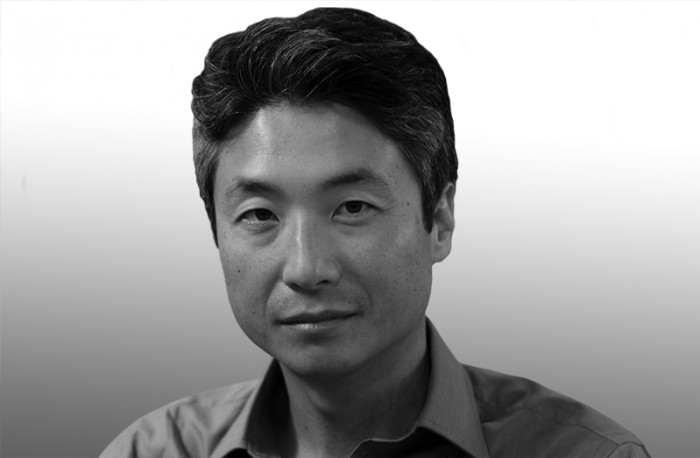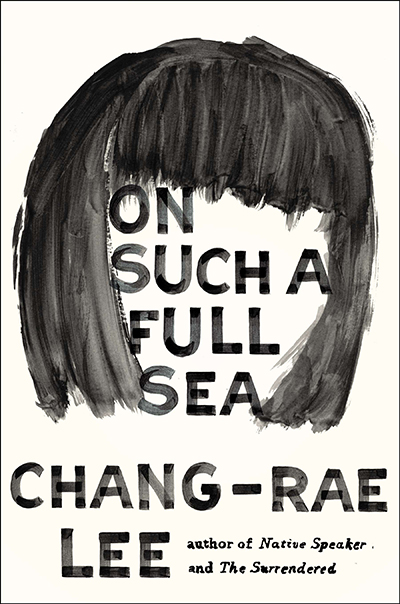Con Artist
by Beth Castrodale
 loyd Shrumpeter’s thick pink fingers with the neat buffed-and-trimmed nails were a legacy of his grandfather’s and the only thing, it seemed, that connected him to a more substantive time–a time of metal, as if every plane, tank, and gun from the great wars had been melted down and turned into desks like fortresses, typewriters that clacketed like Gatlings, phones that sounded alarm with every ring.
loyd Shrumpeter’s thick pink fingers with the neat buffed-and-trimmed nails were a legacy of his grandfather’s and the only thing, it seemed, that connected him to a more substantive time–a time of metal, as if every plane, tank, and gun from the great wars had been melted down and turned into desks like fortresses, typewriters that clacketed like Gatlings, phones that sounded alarm with every ring.
Once, years ago, when Lloyd had visited Hal Shrumpeter Senior’s office at Furley Auto, Accident, and Life, the old man picked up a gun-metal stapler and hefted it in his hand. “In my day, son, these things were weapons. In fact, I once saw the office Romeo get cold-cocked with a Swingline. The chickens came home to roost for the office Romeo.” He laughed. “Imagine that.”
The stapler on Lloyd’s own desk was plastic and no heavier than a model airplane. He picked it up, tossed it, then squeezed it until he felt the pang of a spring then a loosening of its cheap inner works. It hit the trash can with a sound that was utterly unsatisfactory, nothing like the ring of metal on metal.
* * *
 That Lloyd continued to meticulously trim and buff his nails was something of a contradiction given the state of his life. Or maybe it was a necessity, a type of magic ritual now that he might have need of such things.
That Lloyd continued to meticulously trim and buff his nails was something of a contradiction given the state of his life. Or maybe it was a necessity, a type of magic ritual now that he might have need of such things.
During his days at L.O.F. Marketing Associates, Lloyd now only made calls; he accepted none. Whenever the phone burbled, he waited until voice mail, now his only ally, interrupted after the fourth ring, accepted the caller’s wrath, and transformed it into an angry red pimple of light. At the end of the day, after a long walk into the weedy outer reaches of Industry Square, he would pick up the handset, press the red light.
You have … forty-three new messages.
None of them had a chance against the # * keys and his crushing index finger.
“I—”
Message erased.
“You’d better–”
Message erased.
“You fuckin’–”
Message erased.
On and on it went until the messages disappeared, one by one, into the electronic ether. He curled and uncurled his burning finger to limber it up, straightened his pens, and went home without saying a word to anyone. Keep your nails clean and stay low-key, he told himself. One more week, or maybe two, and you’ll be gone into a new life, a new town.
One night, after a solitary Chinese dinner, he cracked open his fortune cookie and pulled out the little note.
It said, “In all things, your intentions are pure. Your lucky number is 3.”
This uncanny truth rang of validation and permission, and he left a twenty for an eight-dollar check, as if to thank and appease any gods who watched over him.
This was the sixth time that Lloyd had been hired with a résumé that was an artful mix of truth and fiction and the sixth time that he’d reached these sweaty last days. He was on his sixth name, too: William Rutherford Howe, which, like the others he’d chosen, had a solid, presidential ring that seemed a recommendation in itself.
“Oh. You’re Mr. Howe, then,” the receptionist at L.O.F. had said on the day of his interview.
“Indeed I am.”
“We remember that name, of course. And your letter, such a letter. Please have a seat.”
He knew how to use words like indeed, precisely, and undoubtedly that suggested breeding–a gloomy yet romantic childhood at boarding school, a rigorous classical education in damp, dingy halls. Mustard plasters. Headmasters. He’d suggested all of these things in his letters and e-mails, in his phone voice, in his tailored yet not-too-fashionable suits, in the shine on his nails and on his high, intelligent forehead, all of which made him seem older than his twenty-six years. He’d cut a darkly impressive figure in L.O.F.’s sherbet-colored waiting room.
Inside the office of the sales manager, Mr. David Crubbage, he presented himself with grace, humor, and the proper amount of enthusiasm, given the nature of the work he would be doing. He hinted at, without specifying the details of, the painful end of a relationship that had brought him to this new city, this new start.
“Well, Mr. Howe. I can see that you’re more than qualified for this job. But I’m afraid there might be a problem. Not an insignificant one, I might add.” Mr. Crubbage tilted his head, thoughtfully.
“What might that be, Mr. Crubbage?” He braced himself for the news, willed his heart to slow its beating.
Mr. Crubbage sat forward and placed his elbows on the table, touched his fingertips together. “You’ll pardon me if I ask why a man of your obvious education, breeding, and experience would be interested in a frontline sales position at L.O.F. Marketing Associates. Might there be some other position that you would find more … more rewarding?”
Lloyd paused, as if in thought, though this was not the first time he’d answered such a question.
“I am an artist, Mr. Crubbage. That is my reward. Of course, I must support myself, so I chose a profession that comes most naturally to me—and keeps me in pigments.” He smiled. “Sales is that job, I can assure you.”
Outside, the bells of an old clock tower started to clang so loudly that he and Mr. Crubbage had to wait through a carillon interlude and the last toll of eleven to finish. All the while, they smiled at each other like new sweethearts.
“Welcome to L.O.F. Marketing, Mr. Howe.”
* * *
What Lloyd was was a rip-off artist. The reasons for his choice of vocation were not those an armchair psychiatrist might seek. His upbringing, though modest, had been comfortable, and he’d not suffered abuse beyond the ordinary. In his youth, he’d managed to make friends and mess around with some girls. He’d been a passable student in high school and then in college, where he’d received the philosophy degree that was to be his undoing–or his making, depending on how you looked at it. (“Why philosophy, son?” his father, Hal Junior, had asked when he first heard his son’s choice of major. “Where will that get you, exactly?” Three years later, Lloyd had a very good answer. But by then his father was dead.)
Sitting in the lecture hall, Lloyd had been stripped of his belief in free will. Later, in the library stacks, and in small seminar rooms smelling of chalk dust and trapped breath, he’d constructed something to replace that belief—something powerful if imperfect and perhaps dangerous, like a movie monster. In his final thesis Lloyd posited two ways in which Furley Auto, Accident, and Life might destroy Hal Junior: overwork (actual) and a shotgun blast to the temple (theoretical). Both means, he argued, were moral equivalents.
He received an A in the course and then was hospitalized.
Because Hal Junior was ailing by then, his oldest associate, Bill Menahan, visited Lloyd at Our Mother of Charity.
“When you get out, I’m going to set you up with something at the office. Just till you get on your feet. Some understanding of claims adjustment might be practical. And then there’s the paycheck, of course.” He winked and handed over the ketchup cup of pills that the nurse had left for Lloyd. “What do you say?”
Lloyd sat up to take the pills then sip from the bendy straw in his bedside glass. As he reclined, the white-walled room expanded, then snapped back, making Bill Menahan’s face jostle like a ball. Closing his eyes against this, he saw painfully bright light, not the whiteness of the walls but the scalding white of the 60-pound bond onto which he’d printed his thesis.
“In the developed world, nearly all work is a corruption of the soul,” he whispered. “I can provide a moral justification for a life of crime.”
* * *
In his early days on the con—when he could still tell himself it was an academic experiment—Lloyd had considered going it alone, setting up a basement office or renting cheap space where he could do the dirty work and then make notes for his never-to-be written It’s All Relative: Morals and Modern Work. But there was the trouble of sales leads—he had none of his own, and wouldn’t for some time. Working for others, Lloyd got the leads and base pay on top of that. More than that, he discovered that he had a real talent for talking money out of strangers. Never had he been so good at anything. Within a few weeks of his first con, he discovered a living and all but forgot his book.
Lloyd’s duties at L.O.F. were little different from those of his five previous cons. He was shown to the sales bull pen, given a briefing book on L.O.F. products (polar-grade camping gear, fruit-by-mail, slimming undergarments, novelty shower curtains, among others), and told to study up. His own mission, too, was little different: within two months, he was to ring up as many sales as he could and divert a certain number of checks to the temporary account he’d set up under the name “Leap of Faith Associates.”
The trick to the con, he’d learned, was to get out by eight weeks (the limit of customer tolerance, given the standard four-to-six-week delivery period) and to give any customers who asked for it a phone number—his own work phone number—to serve as a pressure valve for complaints until he made a break for it. Before accounting caught on to him, and before customer complaints about undelivered goods reached a higher level, he would be on his way to another state, with another car, another license, and, this time, perhaps another hair color. He might arrive in Montana as a redheaded trucker with a limp, a twang, and an aura of recklessness irresistible to women.
L.O.F., like the other places, was obsessed with the notion of the “team.” To get the job, he had to assure Crubbage that he was a “team player.” On his first day, he was welcomed to “Customer Satisfaction Team F,” housed in a quad of cubicles by the break room.
The members of Team F barely looked up when their leader, Rob, introduced Lloyd around.
“Hey,” said a kid who looked about 18. He was transfixed by the explosions on his computer screen.
“Death Ray is on all of the computers, William,” Rob whispered as he led him away. “In case you want to play it on your break. You get ten minutes every two hours, no lunch hour. In case you weren’t aware of that.”
These minimal glimpses of L.O.F.’s moral ruin made him all the more eager to get started. “Show me to the phones,” he said in a hero’s baritone that was lost on Rob.
As they approached his desk, a woman rose from the adjoining cubicle (in Team D, Lloyd learned later) and smiled distractedly, for she was on the phone. Her hair, a dark, blueberry color, was twisted up messily on top of her head and fixed with a pencil. She had beautiful brown eyes whose sheen dimmed, just slightly, the minute she saw Rob. She turned away and cupped a hand near the mouthpiece.
“Talking to her kid again, on the clock,” Rob mumbled.
“Who is she?”
When she sat down, out of their sight, Lloyd’s heart plunged, then lifted at the thought of seeing her again.
“Hope Topsfield. She’s a new rep, too. Let’s see how long she lasts.”
“What seems to be the problem with Hope, Rob?”
“William, I’m afraid she’s not making herself part of her team. I’m afraid she’s letting them down, us down.” Rob looked him straight in the eye for the first time. “So don’t get too attached. To Hope, I mean.”
“Not my policy.”
Rob nodded then extended his hand to the empty cube with the black console phone. “Well, here you are. You’ll get professional selling skills at eleven—I know you’re a vet, but it’s standard–then we turn you loose at one. For now read your phone manual and check your call list. Got it?”
“Certainly do, thanks.”
Rob gave him an abrupt, clammy handshake then vanished, leaving Lloyd to his inch-thick list of prospects.
From the other side, where the kid sat, came the sounds of apocalypse. Behind him, the lovely Hope cooed what sounded like a lullaby. It was a fine day to begin.
In these halcyon days of tele-sales—before the rise of the Do Not Call Registry—L.O.F.’s prospect lists were especially sweet, drawn from the ranks of catalog addicts, tchotchke enthusiasts, TV shopping junkies. As he flattered and cajoled these people over the phone, Lloyd often imagined them sitting amid personal museums of junk: commemorative Civil War plate collections, vibrating heated cushions, Wurlitzer jukebox banks, various lidded contraptions that tinkled popular tunes when opened.
“I’m sure you’re concerned about your grandchildren’s educations, Mr. Stearit. You sound like an educated person yourself.”
“I might be.” Stearit grunted and chuffed in what might have been impatience, disgust, or the symptoms of chronic illness. Like so many of the people Lloyd called, this man’s indifference–if that’s in fact what it was–was not great enough to get him to hang up.
“Mr. Stearit, do you know that 80 percent of elementary school students can’t identify even five of the United States on a map? Do you know that odds are that your grandchildren don’t even know your state’s capital? Madison, isn’t it?”
Stearit grumbled and made some kind of clicking sound with his teeth. Dentures?
“What are you driving at?”
“Our Wisconsin state shower curtain has been endorsed by the U.S. Geographical Education Center as a valuable learning tool. It is a detailed, topographically accurate, large-format representation of the Badger State, complete with locators of major cities and geographical features; lists of key industrial and agricultural products; depictions of the state bird, tree, and flower; and a timeline describing important events of Wisconsin’s rich history. If your grandchildren shower at least three times a week, Mr. Stearit, their reading and geographical skills are bound to improve. Studies back me up on this.”
“How much does this thing cost?”
“Thirty-nine ninety-nine, plus tax. Sixty-five plus tax if you order two.”
“Jesus.”
“I think you’re concerned about your grandchildren’s educations, Mr. Stearit. Isn’t that true?”
“It might be.” He rattled his teeth again. “But really, Mr. …”
“LaRue.”
“Really, Mr. LaRue. What does my grandchildren’s education have to do with a shower curtain? What does much of anything have to do with a shower curtain?”
“I’m just reporting the results of a–”
Mr. Stearit hung up the phone.
“That was pretty good.”
He looked over his shoulder and saw Hope standing by the cubicle wall with a steaming coffee cup. Lloyd was both startled and thrilled. Though he’d been on the job for almost a month, he hadn’t exchanged more than a few words with Hope, who was almost constantly on the phone, using one of two opposed voices: the halting, script-reading voice of her sales calls or the hushed, passionate voice directed toward her apparently constant personal crises.
She wore little make-up, but her clothes were snazzy–a fitted purple suit cut just above the knee, purple pumps, and shiny pantyhose printed with Eiffel Towers, gondolas, and passports. Her legs, Lloyd noticed, were quite shapely. He looked down, away, toward the carpeting, feeling his face growing warm. “Well, I didn’t get the sale. That’s not so good.”
She shrugged. “Yeah, but you’re new.”
“Not really.”
“Well, you would have tempted me. Is that really true, about the National Geographical Society endorsement? Because I have a kid–”
“It’s absolute rubbish, I’m afraid.”
Loathing surged through him, for Stearit’s rattling teeth, for Hope’s naiveté, for the smell and light of this place, which in a perfectly just world would be reduced to rubble.
She put a hand to her mouth, her brows arched. But she started to smile, then laugh, revealing the delightful surprise that she was a bit snaggle-toothed. This little imperfection clutched at his heart and stirred longing, mingled with a premonition of disaster.
“I’m glad you have a sense of humor,” she said, recovering herself. “You’ll need it here.”
Lloyd had never mistaken his conning skills for having a sense of humor. Still, he took the compliment.
“I’m Hope,” she said, extending her hand.
“William Rutherford Howe.” He took her hand and pulled it forward a little, considering whether to kiss it. But when he saw the look of anticipation, or confusion, in her eyes, he gave her hand a little squeeze and released it, regained himself. “What brought you here, Hope?”
“I’m raising a kid on my own.” She offered the explanation immediately, as if it were customary. “His father’s out of the picture. I mean, he’s not dead, he’s just … just a bum.”
“I’m sorry,” said Lloyd, though he wasn’t at all.
She shrugged, as if to dismiss any notion that she should be pitied. “I just wouldn’t want you to get the impression that I’m working here for the love of it.”
“Thanks for straightening me out on that.”
Hope snuffed a laugh against her hand and then swayed closer, almost drunkenly, lowering her voice confidentially. “Word’s getting around that you’re an artist.” She said artist in a near-whisper, in the way that some would say “bed wetter.” It occurred to Lloyd that he might have chosen the false profession that–at least in this place–was shrouded in mystery commensurate with his need for secrecy.
“So do you paint, or what? If you don’t mind my asking.”
Lloyd glanced down at his nails and realized, distantly, that their neatness might give him away. Ideally, they’d be dulled from solvents and chipped, perhaps flecked here and there with paint or yellowed varnish. “Well,” he said, “painting is part of it, yes, but I guess the proper classification—if the thing that I do must be classified–is that I am a mixed-media artist. I use paint, yes, but some of my works incorporate welded metal parts, paper sculpturing, automotive detritus, and other found materials. And I’m not above some cheap tricks with photo transfer, either.”
“I love art of all kinds,” Hope said eagerly, as if she hadn’t heard him. “When I was ten, and my aunt was living in New York, she took me to a Roy Lichtenstein exhibit. I never forgot it.”
Her expression grew solemn, almost bitter, making him wonder what particular, lasting appeal those cartoony, dotted images–the recriminating women crying fat tears, the bland apartment scapes, the vapid dialogue–had for her.
When she noticed his gaze, she did not change her expression, but seemed to include him in her memory, studying him like the representation he was–an assertion of form, lightness, darkness. Then, her eyes flashed with awareness that she was staring.
“Well,” she said at last, “I better get back to work.”
At the beginning of week seven, just as Lloyd’s voicemail began accepting the wrath of the stiffed, Hope disappeared for three days. He could have asked Rob, game boy, or any of the other members of Team F where she was but was afraid to hear the answer. It was the nature of corrupt organizations such as this to silently purge the weakest and most defenseless, removing their personal effects and name plates overnight, as if they’d never existed.
In response, Lloyd sold more aggressively than ever. Those feverish three days in the cube recalled to him that time in carrel 105 of the Randhoff Library when the ideas for his thesis had come together at once, as if he were merely their recorder.
When, on Thursday morning, Hope strolled into the office looking harried but otherwise fine, Lloyd could barely restrain his joy. He thought of ways he might approach her, of lines he might use to show his interest, casually yet unambiguously. These thoughts were checked, however, by the knowledge that he must leave in a week, two tops. What was the point of falling in love?
Still, Lloyd barely disguise his delight when later that day, Hope called over his shoulder in a voice that was both soft and insistent.
“I hope I’m not being too forward,” she said, clasping her coffee cup protectively close, “but I’ve been thinking about you being an artist, I mean a real artist.”
His heart skipped. “Tell me more.”
“Well, my friend Thea is on the new Arts Council, and she’s trying to put on a show of the local talent. It’s just a month off, and she’s having trouble fleshing it out, as she says. With something different, that is.” Hope was warming up a bit, becoming less bashful.
She continued: “There’s no shortage of puppy pastels, she tells me. Or peonies and teacups. What’s lacking is genuine work,you know? Something that might make people think.”
“I see.”
“It sounds as if you might do the type of work that Thea is looking for.” She lowered her eyes, and her cheeks flushed ever so slightly. “But I understand if you don’t have any interest in a small-town show.”
Of course, taking part in any sort of show was impossible, and Lloyd had an excuse at the ready: his works, as large as they were, would have to remain in storage until his new studio was built.
But his tongue felt suddenly thick and immobile, giving his mind enough time to focus on the familiar bright-heat from within himself, now narrowing to a laser-sharp point of inspiration. In his mind, the work of art, the work that he would create, was assuming the vertical, pronged height of an organpipe cactus.
“Of course I do.”
Hope rocked forward with joy. “Thea will be so delighted, William. If you want to bring in some photographs of your collection, she can–”
“Oh, there’s only one work I’d enter,” he said, his plan nearly formed. “I’m afraid the rest are in storage. “Perhaps you and Thea would like to stop by to see it? Perhaps this weekend?”
“I’d be delighted.”
This city, as it turned out, had an art museum, an impressive-looking if small one that boasted some lesser-known works by big names (Monet, Picasso, Giacometti) as well as pieces by local and regional artists, an Egyptian collection, and two rooms full of the glassworks of Joan Astra, a New Mexican artist who, Lloyd learned from the museum catalog, had attended a local university years before and had since “achieved international fame.”
He had not visited a museum of any kind for years, and something about the strangeness of being there, of walking through its echoey marble halls in the middle of the day (in a raincoat he never removed) made him aware that he was a criminal. The sensation was not entirely unpleasant. In fact, he felt remarkably at peace, especially as he ambled through the small eighteenth-century collection with its portraits of old scoundrels in velvet and lace. They fixed him with steely eyes that missed nothing of the truth about him.
Lloyd kept moving, skirting the Egyptian collection and the touring exhibit of nineteenth-century landscapes. He was here to see the large, modern pieces–the sculptures, the mobiles, especially anything made of television sets or car parts–understanding that he could not get away with making anything small or two-dimensional. His creation would have to be of a sufficient scale to forgive its inevitable ugliness and shoddiness.
He studied the stringy lengths of the two Giacomettis, looking for seams, connecting joints, or soldering and discovered nothing of its construction. The scrambled lines confounded him in their intricacy, their lack of beginning or end. A sculpture by Species Zero, a local artist, presented another impossibility. Some type of hybrid of an early submarine and the innards of a great clock, it would have required the resources of a Defense Department contractor.
Joan Astra, he discovered, was obsessed with pupas, which, according to an interview with her in the catalog, “are intended to embody the secrecy and contained fire of all life, all lives.” Her exhibit was full of glass pupas in all shapes, sizes, and configurations. A group of them hung, like a curtain of parti-colored cream horns, in one large window, scattering shivery globs of light—purple, red, and green—across the walls and floor. In another corner, a delicate totem pole of them reached nearly to the ceiling. Suspended in each transparent body was a different object that Lloyd could not connect to any particular theme—a pulled tooth, a rattle, a fortune cookie, something fleshy and obscure like part of an organ. “Journey,” it was called.
Astra’s grandest work stood at the center of the room–a nine-foot-high pupa within a pupa within a pupa, at the core of which sat a sculpture of a naked woman, arms clasped in front of her shins, shorn head tucked to her knees, like someone poised for a tornado. Lloyd knelt down and stared through the layers of bluish-green glass, which gave her the warped and dappled look of something under water. His first sense was that he’d seen this work before, perhaps in an airline magazine, or while flipping through channels on motel cable. But the memory held more weight than that.
He tapped the glass before he realized what he was doing, but no alarm sounded. He looked from right to left and then over his shoulder, and saw that the room was empty. Even the guard had disappeared; the measured scuff and squeak of her crepe soles echoed in the adjoining corridor.
Lloyd got up and stepped back to read the plaque. “Sea Woman Waiting,” it said. He scanned the Joan Astra write-up in the catalog for a mention of the work and found nothing but a studio shot of “the artist’s assistants” (a group of sweaty, long-haired men in their twenties, stripped to the waist like roadies) pouring glowing-hot glass for “Sacred Object.” In truth, he did not want to learn what had inspired the Sea Woman’s creation, or to see her molten origins, for he felt in his heart that she had never existed apart from him, that she was his own, necessary illusion.
Lloyd left the museum immediately, dropping the catalog in the trash can past the revolving doors. He hailed a cab and directed the driver to a lumber “super store” he’d seen advertised. It was time to begin his project, his other project. As the cab sped past the gloomy bungalows at the edge of town, Lloyd realized that his mind was repeating the words “Sea Woman Waiting, Sea Woman Waiting, Sea Woman Waiting.”
It was a revelation to Lloyd that roadie-like apprentices did the grunt work of important artists, but because he had no roadies—much less a vision—he cabbed around, aimlessly at first, buying lengths of lumber, a power drill and nailer, various hardware, spray paint, glues, and plaster of Paris. Eventually, he asked the driver (who was remarkably patient, or indifferent, remaining silent throughout the adventure) to cross the highway and drop him and his growing collection of supplies at Van-Tastic. There, for fifteen dollars a day, Lloyd rented a rust-speckled Econoline, loaded it with his purchases, and headed for a scrap yard that, according to Van-Tastic’s proprietor, carried “Grade-A Shit.” That one junkyard could be better than another was as pleasing as it was puzzling and made Lloyd grateful to have been saved from the inferior spots, which might have dimmed his fragile inspiration.
The guardian of the junkyard, a skeletal man toplit in his booth by a single bulb, barely looked up from his paper to wave Lloyd through the gates. Lloyd pulled the van to a stop along some stacked, rusted-out chassis and stepped out into the crispening air. It was near dusk, not long before closing time, he guessed, but he paused anyway, momentarily confused. Beneath him, the earth felt less than solid and seemed to faintly ripple, as if just settling down after some disturbance.
He moved past the chassis, past mounds of stacked tires and fenders. Behind a stand of old sinks and wringer-washers was the type of child’s car, run with pedals, that he’d owned years ago and hadn’t thought of since. Further on, silhouetted against the twilight sky, were the metal legs of an upturned kitchenette set very much like the kind that his grandmother had owned. The starbursts and galaxies on the chairs’ turquoise vinyl had actually entered his childhood dreams, twinkling and spinning in a silent wind.
This place had a museum’s mysteries, but without the keen glimmers of human calculation–without the con. And if anything was a con, art was. Lloyd did not doubt the genuineness of the artist’s passion, any more than he doubted the thing that drove him. But the willful creation of illusion was their life’s work as much as it was his. And if the illusion happened to convince and seduce, so much the better.
He moved on, looking here and there for things that might cast some sort of spell on Hope, realizing that all his choices would be presumptuous, based on the scantest impressions that were filtered through his own desires. He picked up a soiled dressmaker’s dummy, still stuck with pins, then put it back, understanding that the only thing that had drawn him was its suggestion of a woman’s form. Later, he scaled a treacherously stacked hill of scrap for a bike fender, painted bright metallic purple, that glinted like a lacquered curl in the last rays of a sun. Somehow, this thing stood out as being absolutely perfect and necessary. With time, Lloyd developed a churlish certainty of purpose that an artist might call “vision,” and this made him move fast; he was under a fragile spell that too much contemplation would break.
Reminded of Hope’s trip to see the Lichtensteins, he picked up a stack of old comic books that he’d found in a mildewed box, then some broken picture frames. In a far corner of the scrap yard, amid piles of broken concrete blocks and tile, he discovered some glass bricks that would have to come with him, though they were heavy and far from the gate.
By the time Lloyd had finished, just minutes before the yard’s closing, he’d accumulated a chest-high pile of junk. At a post near the gate, he rang a yellowed doorbell labeled “customer service,” summoning the booth man, who shuffled forth, then circled the pile once.
“That’ll be ten dollars,” he said. “Cash only.”
As Lloyd drove back through the gate, his van now packed to the roof, the booth man was bent toward the glow of a lunch-box-sized TV. He gave no sign as Lloyd passed.
* * *
Lloyd realized that the thing he was to create would look nothing like the organpipe cactus of his early vision; his ability and materials permitted nothing so graceful. After he’d pushed the cheap living room furniture aside and laid down a couple of old sheets, he mixed himself a bourbon and water in a convenience store tumbler and stood staring at the empty space, and drinking, until the back of his skull tingled pleasantly. Then, from the front hall and kitchen, where he’d crammed everything from the van, he carried in the pieces one by one, stacking them according to their weight.
When he had finished sorting the junk into piles, he paused again. He looked from pile to pile and in his growing drunkenness, felt more and more that he was standing in an indoor scrap yard. Other purposes and desires were not available to his imagination. The last time he’d felt this way, he’d also stood amid junk–in the driveway of his parents’ house, shortly after their separation, not long before Hal Junior learned of his cancer. It seemed in those days that the two of them, Lloyd and his father, were always standing, mystified, among things that had to be sorted or discarded, reluctant to admit that what surrounded them (the driftwood lamp, the mildewed boxes of games with their missing pieces, the black vinyl couch that nearly stripped the skin from the back of Lloyd’s thighs so many childhood summers) was garbage. At the same time, it seemed important to get rid of these things as quickly as possible, get them out of sight, and then find some new things—things free of history—to fill the putty-colored rooms of his father’s brand-new condo.
That college summer, Lloyd had been working as a clown at the zoo–as a “subtle clown,” he liked to say, for he wore street clothes and minimal grease paint. The job depressed him, but not for the reasons one might imagine. Every day put him in brutal touch with the sadness of childhood: the fascism of organized trips; the random cruelties inflicted by kids who were older, bigger, fatter, or skinnier; the hideous stuffed “prizes” clustered at the rafters of various attractions.
At first, Lloyd had tried to single out for attention the unhappiest-looking children, the ones who appeared most abandoned or misunderstood. But, almost universally, they shrank from him and kept moving. And Lloyd saw himself, momentarily, through their eyes–an incarnation of life’s ugliness and disorder, a portent of future cruelties that would come out of nowhere.
Eventually, he tired of these reactions and took to making kamikaze ventures toward clusters of malicious-looking teenagers, arguing lovers, tense-looking loners. He understood by then that his function was to annoy and thereby de-fuse, and so he looked for situations where his effect might be the most catalytic and useful. To his surprise, though, his approaches (in which he might tell a stock joke or two from his training or twist a balloon into one of three animal shapes) usually were met with a curiously patient silence, a forbearance bordering on politeness. Lloyd came to understand that, as Lethargio the clown, he was a good deal like a threat divorced from meaning or context, a mugger without portfolio.
It was in this frame of mind that, that summer afternoon, he’d driven to his parents’ house without removing his arched black eyebrows and down-painted mouth. He knew that this was an act of aggression against his mother, who had hinted that he should once again see Dr. Slocum, and just one more layer of strangeness for his father, to whom so many other things (aside from the dependable drain of his job) were now strange, and new. But his mother did not emerge from the house when Lloyd arrived. And Hal Junior seemed to take no notice of the grease paint.
“Thanks for coming, son.” He laid a moist hand on Lloyd’s shoulder. “I’m making a go pile and a stay pile, and the stay pile can be only yay high because the new place doesn’t have much room. Just use your judgment.” He winked, though his expression was grim, and the movement seemed like an illusion, a flickering of life in a sandstone head. “You know what the single man requires these days.”
Despite his father’s assurances, Lloyd did not know how or what to choose that day. He would have liked to think that the things he put in the stay pile would be of particular use to his father in his new life, but very few items on that driveway could be considered useful. So he chose the things that still held some residual fascination from the years they’d spent together in the jaundiced, pizza-parlor light of the basement. Among them, a footlong human skeleton suspended on a platform and wearing a fake Olympic medal that a young Lloyd had crafted, a salt-paste volcano (now growing crystals) that he’d made for his third-grade science fair, and an Indian rattle full of dried navy beans.
After a few minutes, Lloyd felt his father standing beside him again. He expected some mild reproach, or to be questioned as to whether there had been some confusion between the stay and go piles.
But his father was silently crying. This was maybe the second time in his life Lloyd had ever seen him shed tears.
“All these things you made, son. Such beautiful things.”
Sometime between ten p.m. Friday and one a.m. Saturday, after a third or fourth glass of bourbon, Lloyd had entered that fragile and magical frame of mind that some have referred to as the artist’s trance. He moved, stacked, glued, drilled, and hammered with a purpose he’d never before felt, following not so much a vision as an instinct. His choices seemed at once preordained and surprising, driven by a desire to discover what he could in these materials before the magic wore off and the sun rose, showing the junk for what it was.
One thing he discovered was that Hope was at the center of every choice. As Lloyd built the scaffolding of metal and wood, as he pasted the comic-book faces behind the wavy glass brick, as he affixed the purple bike fender at just the right crowning angle, he thought constantly of her shape, her voice, her gestures, her trapped glory.
Lloyd finished just after five a.m., as the sun was rising. He told himself he had to wait until at least ten to call Hope, to tell her that she and her friend Thea could stop by at any time.
Later that same morning, Hope regarded her son, Avery, from across their kitchen table. He had just finished a piece of the cake she’d baked to celebrate his six-and-a-half-year birthday. Now, he was making his usual morning effort to read from the Times.
“Mommy, what’s this word?”
Pointing an inky finger to the relevant spot, Avery slid the paper toward Hope, who read the word aloud: “perceived.”
“What does it mean, Mommy?”
Usually so proud of Avery’s ever-active mind, Hope was feeling cranky and ill-equipped for it this morning. “Seen, viewed.”
“Read it in the sentence please, Mommy.”
The word was part of a quotation from a Dr. Feldman, which in turn was part of an article titled “Dating and the divorced parent.” Hope considered that delving into this particular piece might not be such a good idea. But she tried to never be dishonest with Avery, and so she read Dr. Feldman’s words aloud: “‘Giving a child at least a perceived choice about the parent’s future mate seems to contribute to harmony, although the child’s choice need not be the central concern.’”
Avery made a face. “‘Giving a child at least a seen choice, at least a viewed choice.’ It doesn’t make sense, Mommy.”
Hope pushed the article away, but Avery reached for it, scooted it back between them.
“Okay,” she said. “It means you give the child what seems to be a choice—what they would see as a choice—so they feel they’re getting to choose, even if that choice is not really significant, to the parent that is.”
As soon as the words were out Hope was sorry for them. Surely Dr. Feldman would not have put forth such a cruel explanation.
Yet Avery registered no hurt or offense. He had the article back under his nose and was staring into it as if he might dissolve it through sheer concentration. (His brain is eating, Thea had once remarked upon Avery at his reading.)
Now he fixed his eyes on Hope.
“So when you meet a man, you might ask me if I like him but do what you want anyway.”
Hope cast him her silly-you look. “Avie, the article’s not about me. And anyway I didn’t say I agree with it.”
She got up from the table to get more coffee. The dull headache she’d awoken with had knotted itself behind her right eye.
“What if you fell in love with Dr. Feldman? Or someone like him?”
“That’s highly unlikely. Now put aside that paper and finish your juice.”
Hope drained the last of the coffee from the carafe into her cup and considered how she was heading for trouble with Avery. In fact, she was already deep into it, and she had no one to blame but herself.
At all times, Avery got most of what he wanted. But as Hope saw it, it was only because he was unusually appreciative and deserving. He never asked for more than what she would gladly give to him, in most cases.
Hope’s sister, Martha, who had money enough for two nannies, had voiced her disapproval about Hope’s parenting, and Hope no longer spoke to her. And Thea, now the closest adult in Hope’s life, had started making faces of distaste when she heard of such things as the half-birthdays.
But no one, not even Thea, knew about moofy.
To merely think the word, as Hope was doing now, sent a chill through her.
What was moofy? It was Avery’s word, Avery’s cry, invented years before to unite her breasts with his desire for food and comfort. As his vocal cords matured, moofy took on a husky insistence, tearing through the house like a separate being bent on making Hope its own.
Finally, around the time of Avery’s fifth birthday, she’d managed to end the breastfeeding, but there were still nights when he’d call out moofy—in his sleep, she assumed, she prayed. She’d lie in her bed frozen, sweating, thinking that if this happened once more, it might be time to call that family therapist Thea had recommended.
Sometimes in her own dreams Hope answered the doorbell to find Avery standing on the porch—an older Avery dressed in business-casual—tan khakis with a pressed blue shirt that exactly matched his blue eyes, which were set in a composed and mature face above the quizzical mouth of his childhood. His smile and baritone voice tinged the word moofy with what may or may not have been irony. He’d glance over her shoulder, into the depths of the house, then smile at her again and shrug, as if to say, Well?
In the dreams, she could never speak. Instead, she’d cover her aching breasts with her arms and will herself to wake up, or for the dream to change.
In the kitchen, as Hope began to rinse the coffee carafe, the phone rang and she answered it.
“Hope, it’s William. Can you and Thea come this evening, for cocktails and a little showing of my work?”
Hope’s heart beat hard with anticipation. “Oh, yes, I’d be delighted. What can I bring?”
“Nothing but yourself and Thea, of course. And your son, if you’d like.”
Hope couldn’t bring herself to mention, in front of Avery, that she was planning to call a sitter. “What time shall we say?”
“Seven?”
“Yes, wonderful. I’m so looking forward to it!”
Hope hung up and turned to Avery, who had neither finished his juice nor put aside the paper.
“What is wonderful, Mommy?” he asked, his eyes searing hers.
Lloyd had finished his preparations (including his first cleaning of his apartment) by six-thirty Saturday evening, poured himself a drink, and sat in his small living room to admire his work, which he’d called simply “Ode.” Including the bike fender, it measured just over ten feet high, and he might have built it taller had it not been for the limits of his ceiling.
Never before had he had any interest in creating art, much less the sense that he possessed any sort of talent, but now he wondered if, by accident, he’d stumbled upon some new path for his life. Part of him suspected that any artistic institution of at least the C level would consider his work to be poorly envisioned and executed. Yet he also believed that he’d captured some truth, some authentic statement about lived female life (Hope’s) that any moderately sensitive person would respond to.
If someone had wheeled “Ode” into a corridor adjoining Joan Astra’s, no one would see it as a fraud, of that Lloyd was certain. And it was just this vision—of “Ode” standing solitary in an antiseptic yet reverential gallery space—that gave Lloyd the near certainty of being accepted into Thea’s show, and Hope’s heart.
The phone rang again, four times, and the caller hung up without leaving a message. It was at least the fifth time this afternoon that he’d gotten a hang-up. Worry that Hope was calling to cancel kept him from picking up the phone. Lloyd speculated (foolishly, he realized) that she was not the kind of person to break a date through an answering machine message, and if he didn’t pick up the phone, she wouldn’t be able to break the date.
He hadn’t felt this way about a girl since college, but why? He hardly knew Hope. What if she were seriously dating another man? What if her ex were dangerously unhinged, the jealous, lover-killing kind? What if she honestly had no interest in Lloyd?
The phone rang again, and Lloyd gripped the arm of his chair as he counted to the fourth ring. This time the caller didn’t hang up.
William, this is Rob from work. I hate to leave this kind of message on your machine, but you’re not answering, so I guess I don’t have a choice. From the background came the sound of rattling paper, then of the receiver being muffled as Rob spoke to someone on his end.
Listen, we found some things in the call accounts that we’re a little concerned about, some things showing up where they shouldn’t be. I’m not saying it’s anything you did—I’m sure it’s not—but I’m wondering if I could come by a little later to ask you some questions, just to clear things up. If you’re around give me a call, OK? All right then, bye.
Lloyd drained his drink and sat up. He braced his trembling hands against his knees and put his mind to the problem. This wasn’t the first call of this kind he’d gotten since he’d begun his life on the con. In fact, he’d come to see such calls as blessings, signs that it was time to pull up the tent and move on. Up to now, the powers that be had been stupid or untutored enough to give him this kind of warning, and there was no reason to think it would be any different this time.
But this time, he wasn’t ready. Not yet. Over the past few days, he’d begun to reconstruct his vision of the future, and it no longer included packing alone in the middle of the night as hair dye or bleach assaulted his nostrils and scalded his scalp. Lloyd knew he had to think and move quickly, but this setback to his still-brewing plans left him immobilized.
And then the doorbell sounded. As he went to answer the door, Lloyd pulled the phone cord from the wall.
Outside, on the crumbling stoop, stood a woman of about fifty in a loose, ankle-length dress of purple and green satin. Her pointed face and small stature gave her a girlish look, and her graying hair had been done up with little pins studded with sparking flowers and dragonflies.
“William Howe?” she inquired.
Lloyd realized from her face that his own must have registered disappointment at Hope’s absence.
“That’s me,” he answered, trying to sound cheerful.
“Thea Granby of the Arts Council,” she replied, extending her hand, which Lloyd shook warmly.
“Delighted,” he said. “Won’t you come in?”
“Thank you,” she said, rummaging through her purse as she stepped over the threshold. “Hope will be here in a minute. She couldn’t find a babysitter for her boy, and she’s back at the car trying to make him fit for society.”
Thea fixed Lloyd with a conspiratorial look. “The child can be dear, but on occasion his behavior is, well.”
In that instant, Lloyd had a vision of his potential influence on this boy he hadn’t met. He saw himself sitting by the child’s side on the stoop, imparting wisdom that might change his young life.
…and when you discover that you need not meet society’s expectations—that, in fact, you can happily thwart them—the world will open up for you ….
Thea found what she was looking for in her purse—glasses. With an almost ceremonious gesture, she perched them on the bridge of her nose and stepped forward to face “Ode.” She then took measured little steps around it, like a druid going through the paces of a ritual. All the while she looked it up and down and made soft sounds of appraisal—whether appreciative or not, Lloyd couldn’t tell.
“You follow Ferber?” Thea, now behind the sculpture, poked her face around the side of it. “The Ferber works in glass and metal?”
“Some.” Lloyd prayed she wouldn’t probe much further than this. “I’m more influenced by Astra.”
“Oh, yes. Joan Astra. I can see that now. She’s a worthy inspiration.”
On completing her orbit, Thea stopped and stood with her hands on her hips, still staring at the sculpture.
“Well, I think it’s truly extraordinary, and we’d love to have it in the show.”
Lloyd’s heart leaped. “Seriously? You truly mean that?” He wished immediately that he’d been more subdued, as if he were accustomed to such invitations. “I mean, I don’t usually get much interest from people who run, you know, local shows.”
Thea turned to Lloyd and smiled in a way that suggested she was indulging him. “I can assure you that we’re not like most small-town arts councils. We want what’s new and different. We want the risk-takers.”
“Well, I’m certainly that.”
He laughed, and she laughed. She didn’t take her eyes from his.
“Pardon me for saying this, but has anyone ever told you that you resemble the young Gregory Peck?”
“For that, you get a drink. Gin-and-tonic? Wine? Soda?”
“Wine. White, if you have it.”
“It’s yours.”
As Lloyd turned to leave for the kitchen, he was stopped by the sound of commotion outside the front door—thumps that weren’t knocks, and something literally beastly—snarling? He turned to Thea, as if she might have an explanation.
“Prepare yourself for Avery Topsfield,” she exclaimed wearily.
Lloyd and Thea listened, immobile, as the thumping and snarling diminished, then ceased.
Slowly, the door opened, and in stepped a large-headed but exceedingly handsome little boy with enormous blue eyes that exactly matched his Oxford-cloth shirt—recently pressed but now bearing fresh grass stains. Though quiet, he was chuffing little post-tantrum breaths, suggesting he might still go off. Seeming to sense this, Thea approached, knelt to the boy’s level, and tilted up his chin to look directly into his eyes.
“How’s my Avery?” she said. “My dearest little Avery.”
He stopped huffing and became instantly composed. “Very well, thank you. And you?”
The boy’s sudden gentility disarmed Lloyd. He sensed that this boy—very much like Lloyd himself, as a child—was sensitive, highly intelligent, and very possibly misunderstood, leading him to act out in the only way he knew.
Quietly, like a handler creeping into a tiger’s cage, Hope stepped through the doorway behind Avery. She wore a fitted dress, slightly off-the-shoulders, whose yellow cast a glow upon her face, which was still fetchingly flushed from her struggles with Avery. Lloyd had never seen her looking so beautiful.
Catching Lloyd’s eye, she gave him an apologetic little wave and mouthed, “Hi.”
Lloyd waved back, a motion that Avery detected instantly. He looked at Lloyd neutrally.
What to do? It wasn’t his way to kneel before a child and pander, and he had the feeling the boy would see through this anyway.
So with all the confidence and authority he could muster, he said, “Avery, I’m Lloyd, and I’m very pleased to meet you.”
Avery regarded him with the same neutral stare and then looked at Thea, who gave him a smile and nod of encouragement. Then, he said over his shoulder, to Hope, “You said his name was William.”
This wasn’t the first such slip for Lloyd, and he quickly replied, “Lloyd was my grandfather’s name and my own nickname as a child. Sometimes, especially around boys who remind me of myself as a child, that old name comes back to me.”
Hope stepped forward and took her son’s hand. “Avery, what do you say when someone says they’re pleased to meet you?”
Avery seemed to be passing a bitter lozenge back and forth in his mouth.
“Avery?”
“I say, pleased to meet you, Lloyd.”
Lloyd—and the other adults—would accept this. Nothing could be gained by correcting him.
“Well,” Lloyd announced, feeling it was time to change the focus of the conversation, “I’m getting white wine for Thea. Now what can I get for the two of you? Soda? Wine? Gin and tonic?”
“White wine for me too,” Hope said. She kept hold of Avery’s hand but walked him farther into the room, near the worn armchair from which Lloyd liked to admire “Ode.” She added, “And water for Avery? I like to avoid soda, if I can.”
“Of course.”
Lloyd retreated into the kitchen and made his own drink first—a strong gin-and-tonic that he gulped and finished while preparing the others. Then, he placed the two wines and waters on a chipped glass tray left by the previous tenant and started for the living room.
The sight he witnessed stopped him in the doorway.
Avery was struggling toward “Ode,” mumbling rhythmically. On either arm, restraining him, were Hope and Thea. The three of them had their backs to Lloyd and did not notice him in the doorway. He kept silent and listened.
At first, Lloyd couldn’t make out what the boy might be saying. He strained to hear, and then did.
“Awww-ful, awww-ful, awww-ful.” He said this over and over, like a mantra.
“Stop it,” Hope said in a hushed voice. “Stop it now.”
“But look, Mommy.” He pulled free of Thea and pointed to one of the glass bricks and the pasted-on cartoons. “Look there. You can see the glue. See?”
“Yes,” Hope said softly, taking both of his arms and kneeling to pull him close. “Yes, I see the glue. Now quiet down. Quiet down or you’ll get a spanking. And I mean it.”
“Please, Mommy. Just say it’s awful. Just say it’s awful and I’ll be good for the rest of the night. I promise.”
Avery stopped struggling and stared into Hope’s eyes, just as she was staring into his, and Lloyd was reminded of profiles struck on ancient coins, gods or royals of another realm. Not his.
When, at last, Hope obeyed her son’s command, Lloyd turned and retreated back to the kitchen. The rattle of the glasses on the tray must have caught the women’s attention, for they were at his back instantly, calling after him.
“Oh, William, I didn’t mean it.”
“Of course she didn’t mean it.”
Lloyd ignored them. He rested the tray of drinks by the kitchen sink, braced his hands on the counter, and stared out the kitchen window into the summer evening. Across the street, a sprinkler sputtered to life and hurled spirals of water onto some unknown neighbor’s yard. On the freshly black-topped driveway of another home, a young father knelt by his son, buckled the chin strap of his bike helmet. A bit of the good and normal.
Into this frame drove a black town car with darkened windows. It stopped at the curb in front of Lloyd’s apartment. A moment later, two men stepped out—Rob and Mr. Crubbage. Both wore neat shorts and short-sleeved dress shirts, and both carried bulging leather portfolios under their arms, but while Crubbage was composed, his face an unreadable mask, Rob’s eyes darted this way and that. Sweat stains showed under his arms.
As they walked across the yard, toward the front door, Lloyd sat down on the floor, aware that the women were still speaking to his back.
From the living room came a great crash, and Lloyd was stunned neither by that nor by the approach of his accusers. On some level, he’d long understood that he’d descend once more into chaos, the result of all too many theories and experiments when pushed to their limits. Now, he waited for acceptance: that great strength and weakness of Hal Shrumpeter Junior, and Hal’s faithful companion through a long, difficult, and honest life.
BIO
 After receiving a journalism degree from the Ohio State University, Beth Castrodale worked briefly as a newspaper reporter and then moved into book publishing. For many years, she edited print and digital media for Bedford/St. Martin’s, eventually leaving to devote more time to her fiction writing. Since then, she has completed two novels, which she is currently shopping around, and she’s partway through drafting a third. She also recommends small-press books on her Web site, SmallPressPicks.com.
After receiving a journalism degree from the Ohio State University, Beth Castrodale worked briefly as a newspaper reporter and then moved into book publishing. For many years, she edited print and digital media for Bedford/St. Martin’s, eventually leaving to devote more time to her fiction writing. Since then, she has completed two novels, which she is currently shopping around, and she’s partway through drafting a third. She also recommends small-press books on her Web site, SmallPressPicks.com.
 Dan Fitzgerald started writing a number of years ago. It has only been in the last few years that he has been published. He worked for a long time in the prepress print industry but technology has taken those jobs away. He is currently employed in the meat and bakery departments of a local grocer in Pontiac, Ill. He is hoping that they will open a candle department to further his career.
Dan Fitzgerald started writing a number of years ago. It has only been in the last few years that he has been published. He worked for a long time in the prepress print industry but technology has taken those jobs away. He is currently employed in the meat and bakery departments of a local grocer in Pontiac, Ill. He is hoping that they will open a candle department to further his career.
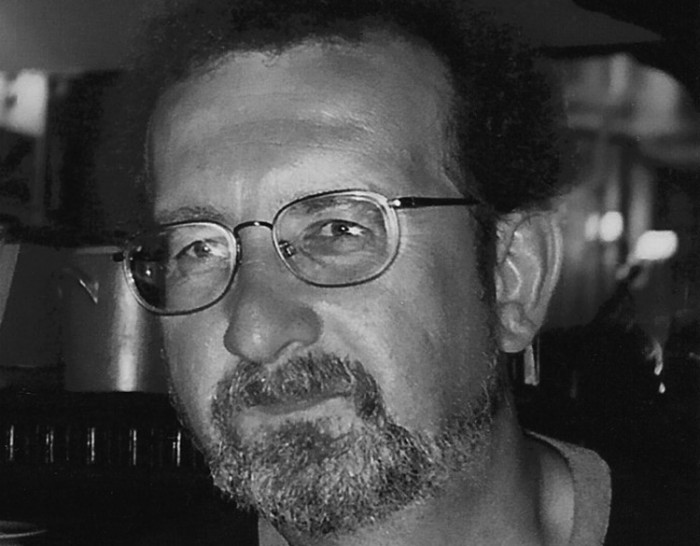

 long with their tray of food for the day, came a pistol. It slid across the cracked concrete of their jail cell like the sound of a rake against an icy sidewalk. None of the three men noticed it at first; each sat with his back against a different slate wall, no cots, just one bucket, their eyes, all bloodshot and purpled in degrees of retaliation, were closed, their chins against their chests. Praying? Trying to sleep? For them, there wasn’t much difference. If a Gestapo peered through the square cut in the upper third of their door, he would have seen James against the left wall, Raymond against the back, and Harold against the right. The scarred wooden tray holding three tin cups of mashed potatoes and three tin cups of coffee—all certain to have another cigarette butt floating in the middle of them—remained a few feet from the flap at the bottom of the door. Motionless.
long with their tray of food for the day, came a pistol. It slid across the cracked concrete of their jail cell like the sound of a rake against an icy sidewalk. None of the three men noticed it at first; each sat with his back against a different slate wall, no cots, just one bucket, their eyes, all bloodshot and purpled in degrees of retaliation, were closed, their chins against their chests. Praying? Trying to sleep? For them, there wasn’t much difference. If a Gestapo peered through the square cut in the upper third of their door, he would have seen James against the left wall, Raymond against the back, and Harold against the right. The scarred wooden tray holding three tin cups of mashed potatoes and three tin cups of coffee—all certain to have another cigarette butt floating in the middle of them—remained a few feet from the flap at the bottom of the door. Motionless. Jake Teeny
Jake Teeny
 R.V. Branham has worked as a short order cook, firewood bundler, security guard, tech writer, aerospace clerk, book-seller, photo researcher, newspaper editor, paste-up ninja, Treasury Department terrorist, assistant X-ray tech, rape crisis counselor, social worker, translator, and interpreter. [Optional: As a ’70s survivor, he co-hosted a floating æther den (as if there were any other kind back in the day). ] He is author/compiler of Curse+Berate in 69+ Languages (a 90 language dictionary and phrase book of insult, invective, obscenity, blasphemy, and other political speech, now in its 2nd. printing, from Soft Skull Press). His fiction has been anthologized in Dinosaurs 2, Full Spectrum 3, Ghosts 2, Hybrid Beasts (a Red Lemonade e-book anthol.), and Midnight Graffiti; and in magazines including Back Brain Recluse (UK), Ellery Queen’s Mystery Mag., Midnight Graffiti, Isaac Asimov’s SF Mag., Tema (a bilingual Croatian mag.), 2 gyrls quarterly, & online in In Other Words Mérida, Red Lemonade, & Unlikely Stories, The Writing Disorder, and W*O*R*K. His essays and interviews have been in the Australian artist book anthols. Mother Sun and Drawn To Words, as well as in Gobshite Quarterly, Paperback Jukebox, Portland Metrozine, and Red Lemonade (online). Two of his plays, Bad Teeth and Matt & Geof Go Flying had staged reading productions in Los Angeles, CA., and in Portland, OR. He is publishing editor of Gobshite Quarterly, a multilingual en-face magazine (a 100 page perfect-bound 6×9 trade paperback, double issue flip book), and as publisher of GobQ/Reprobate Books has published El Gato Eficaz/Deathcats (an en-face Spanish/English edition of Luisa Valenzuela’s classic magico-realist novel), as well as Douglas Spangle’s A Bright Concrete Day: Poems, 1978—2013, with bilingual chapbook & e-book editions of El Gato Eficaz/Deathcats , & collections of Russian and Croatian writing forthcoming in 2014 & beyond.
R.V. Branham has worked as a short order cook, firewood bundler, security guard, tech writer, aerospace clerk, book-seller, photo researcher, newspaper editor, paste-up ninja, Treasury Department terrorist, assistant X-ray tech, rape crisis counselor, social worker, translator, and interpreter. [Optional: As a ’70s survivor, he co-hosted a floating æther den (as if there were any other kind back in the day). ] He is author/compiler of Curse+Berate in 69+ Languages (a 90 language dictionary and phrase book of insult, invective, obscenity, blasphemy, and other political speech, now in its 2nd. printing, from Soft Skull Press). His fiction has been anthologized in Dinosaurs 2, Full Spectrum 3, Ghosts 2, Hybrid Beasts (a Red Lemonade e-book anthol.), and Midnight Graffiti; and in magazines including Back Brain Recluse (UK), Ellery Queen’s Mystery Mag., Midnight Graffiti, Isaac Asimov’s SF Mag., Tema (a bilingual Croatian mag.), 2 gyrls quarterly, & online in In Other Words Mérida, Red Lemonade, & Unlikely Stories, The Writing Disorder, and W*O*R*K. His essays and interviews have been in the Australian artist book anthols. Mother Sun and Drawn To Words, as well as in Gobshite Quarterly, Paperback Jukebox, Portland Metrozine, and Red Lemonade (online). Two of his plays, Bad Teeth and Matt & Geof Go Flying had staged reading productions in Los Angeles, CA., and in Portland, OR. He is publishing editor of Gobshite Quarterly, a multilingual en-face magazine (a 100 page perfect-bound 6×9 trade paperback, double issue flip book), and as publisher of GobQ/Reprobate Books has published El Gato Eficaz/Deathcats (an en-face Spanish/English edition of Luisa Valenzuela’s classic magico-realist novel), as well as Douglas Spangle’s A Bright Concrete Day: Poems, 1978—2013, with bilingual chapbook & e-book editions of El Gato Eficaz/Deathcats , & collections of Russian and Croatian writing forthcoming in 2014 & beyond.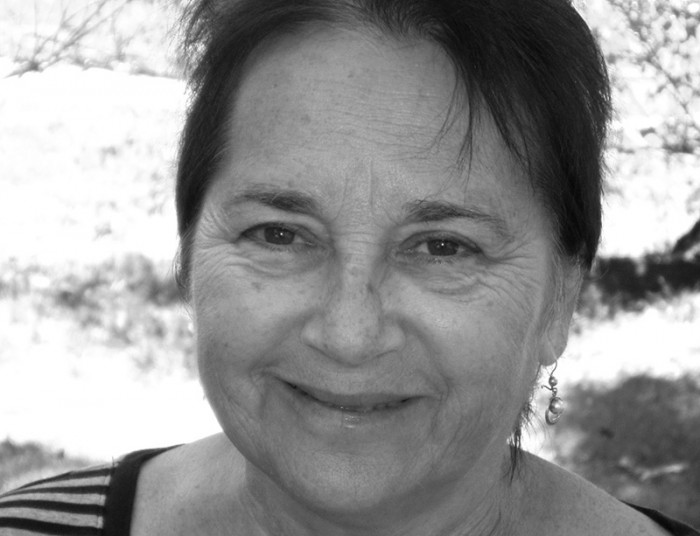
 ibby Korngold did all her research, as befitting the former head librarian of the Upper Moreland Public Library. Their track record of library directors was not very good. Mrs. Helen Jackson, a politically savvy tyrant who looked askance at the Asian and African-American influx into the community, had died of complications from kidney dialysis. The assistant librarian, Peg Forrestal, was quickly elevated to head, only to be diagnosed three years later with breast cancer, had them both lopped off, and gave up the post, though not the ghost, as she recovered at home.
ibby Korngold did all her research, as befitting the former head librarian of the Upper Moreland Public Library. Their track record of library directors was not very good. Mrs. Helen Jackson, a politically savvy tyrant who looked askance at the Asian and African-American influx into the community, had died of complications from kidney dialysis. The assistant librarian, Peg Forrestal, was quickly elevated to head, only to be diagnosed three years later with breast cancer, had them both lopped off, and gave up the post, though not the ghost, as she recovered at home. Ruth Z. Deming, winner of a Leeway Grant for Creative Nonfiction, has had her short stories, essays and poetry published in Creative Nonfiction, Haggard and Halloo, Mad Swirl, Haunted Waters Press, and The River. A mental health advocate who writes articles to staunch the stigma of having a mental illness, she runs New Directions Support Group for people with bipolar disorder, depression and their loved ones. See NewDirectionsSupport.org. Her blog is RuthZDeming.blogspot.com. She lives in Willow Grove, PA., a suburb of Philadelphia.
Ruth Z. Deming, winner of a Leeway Grant for Creative Nonfiction, has had her short stories, essays and poetry published in Creative Nonfiction, Haggard and Halloo, Mad Swirl, Haunted Waters Press, and The River. A mental health advocate who writes articles to staunch the stigma of having a mental illness, she runs New Directions Support Group for people with bipolar disorder, depression and their loved ones. See NewDirectionsSupport.org. Her blog is RuthZDeming.blogspot.com. She lives in Willow Grove, PA., a suburb of Philadelphia.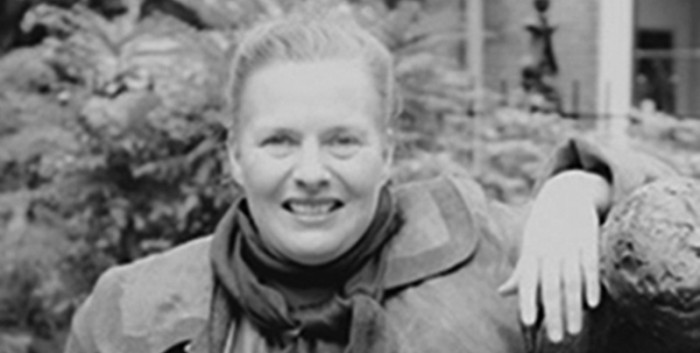
 Persephone Abbott has been composing poems in her head for years. In this way, before they have the opportunity to meet paper, many poems have already been lost, or heavily edited. A book of her short stories, A Sample of Gouda (2014), as well as an alternative walking guidebook, The Bee’s Tour of Gouda, Buzzing Though Vinita’s Lens (2012), have been published and she is currently working on a chapbook, Flowers of Amsterdam. This last item is a result of her recent move from Gouda to Amsterdam, both situated in the Netherlands. Persephone finds poetically she prefers urban vines to rural pastures.
Persephone Abbott has been composing poems in her head for years. In this way, before they have the opportunity to meet paper, many poems have already been lost, or heavily edited. A book of her short stories, A Sample of Gouda (2014), as well as an alternative walking guidebook, The Bee’s Tour of Gouda, Buzzing Though Vinita’s Lens (2012), have been published and she is currently working on a chapbook, Flowers of Amsterdam. This last item is a result of her recent move from Gouda to Amsterdam, both situated in the Netherlands. Persephone finds poetically she prefers urban vines to rural pastures.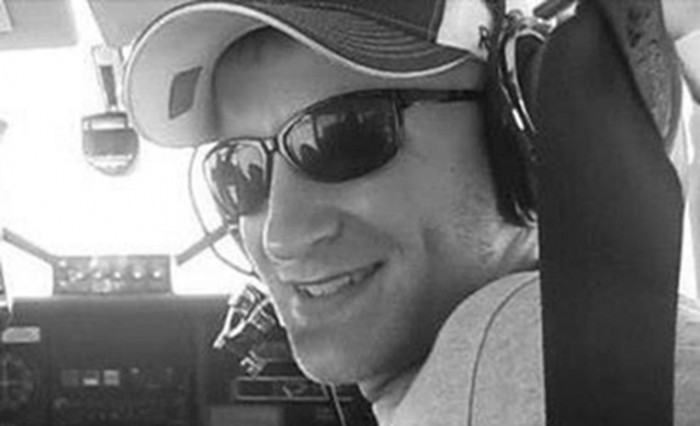
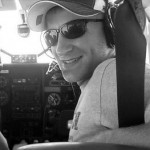 Joshua Michael Johnson teaches at the University of Tennessee Chattanooga and his work has been published in SNReview, Static Movement, and Product 26. He has also been awarded the Ken Smith Award for Creative Nonfiction in 2008 and 2009 by the Meacham Writers’ Workshop. He is a native of Tennessee and finds much of his inspiration in the culture and places he experiences in the little southern city by the river he calls home.
Joshua Michael Johnson teaches at the University of Tennessee Chattanooga and his work has been published in SNReview, Static Movement, and Product 26. He has also been awarded the Ken Smith Award for Creative Nonfiction in 2008 and 2009 by the Meacham Writers’ Workshop. He is a native of Tennessee and finds much of his inspiration in the culture and places he experiences in the little southern city by the river he calls home.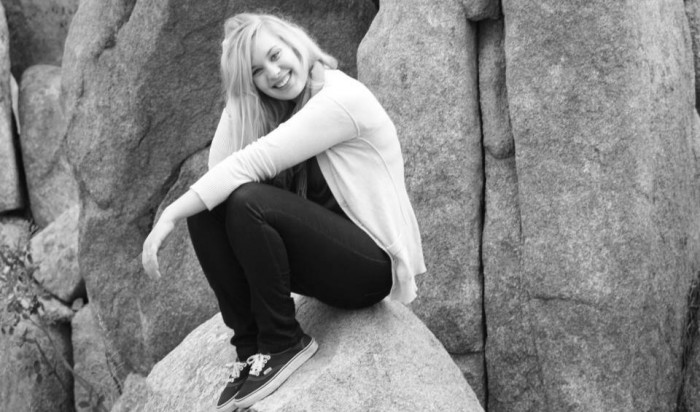
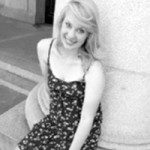 Cassie Kellogg is currently an undergraduate student at Arizona State University studying English and Philosophy. She works as an editor for Canyon Voices Literary Magazine and as an Editorial Intern for Pants On Fire Press. Her hobbies include reading books, blogging about reading book, and drinking Dr. Pepper. This is her first publication. You can follow her on Twitter @cassiiekel or read her blog at
Cassie Kellogg is currently an undergraduate student at Arizona State University studying English and Philosophy. She works as an editor for Canyon Voices Literary Magazine and as an Editorial Intern for Pants On Fire Press. Her hobbies include reading books, blogging about reading book, and drinking Dr. Pepper. This is her first publication. You can follow her on Twitter @cassiiekel or read her blog at 
 Ruby Cowling was born in West Yorkshire and now lives in London, UK, working as a freelance writer for nonprofits. Winner of the 2014 White Review Short Story Prize and the 2013 Prolitzer Prize from Prole magazine, she was a finalist in the February 2014 Glimmer Train Short Story Award for New Writers as well as being Highly Commended in the 2012 Bridport Prize. Her recent print/online publication credits include The Letters Page, Unthology 4, The View From Here, and, in audio format, 4’33” and Bound Off. She is represented by Euan Thorneycroft at A M Heath.
Ruby Cowling was born in West Yorkshire and now lives in London, UK, working as a freelance writer for nonprofits. Winner of the 2014 White Review Short Story Prize and the 2013 Prolitzer Prize from Prole magazine, she was a finalist in the February 2014 Glimmer Train Short Story Award for New Writers as well as being Highly Commended in the 2012 Bridport Prize. Her recent print/online publication credits include The Letters Page, Unthology 4, The View From Here, and, in audio format, 4’33” and Bound Off. She is represented by Euan Thorneycroft at A M Heath.
 That Lloyd continued to meticulously trim and buff his nails was something of a contradiction given the state of his life. Or maybe it was a necessity, a type of magic ritual now that he might have need of such things.
That Lloyd continued to meticulously trim and buff his nails was something of a contradiction given the state of his life. Or maybe it was a necessity, a type of magic ritual now that he might have need of such things. After receiving a journalism degree from the Ohio State University, Beth Castrodale worked briefly as a newspaper reporter and then moved into book publishing. For many years, she edited print and digital media for Bedford/St. Martin’s, eventually leaving to devote more time to her fiction writing. Since then, she has completed two novels, which she is currently shopping around, and she’s partway through drafting a third. She also recommends small-press books on her Web site, SmallPressPicks.com.
After receiving a journalism degree from the Ohio State University, Beth Castrodale worked briefly as a newspaper reporter and then moved into book publishing. For many years, she edited print and digital media for Bedford/St. Martin’s, eventually leaving to devote more time to her fiction writing. Since then, she has completed two novels, which she is currently shopping around, and she’s partway through drafting a third. She also recommends small-press books on her Web site, SmallPressPicks.com.
 Melissa Grunow’s writing has appeared or is forthcoming in New Plains Review, The Quotable, Ohio Edit, The Adroit Journal, 94 Creations Literary Journal, The Dying Goose, Wilderness House Literary Review, and others. She teaches college-level English and creative writing courses in Michigan, and recently finished writing her first book titled “River City, A Memoir in Essays.” Visit her website at
Melissa Grunow’s writing has appeared or is forthcoming in New Plains Review, The Quotable, Ohio Edit, The Adroit Journal, 94 Creations Literary Journal, The Dying Goose, Wilderness House Literary Review, and others. She teaches college-level English and creative writing courses in Michigan, and recently finished writing her first book titled “River City, A Memoir in Essays.” Visit her website at 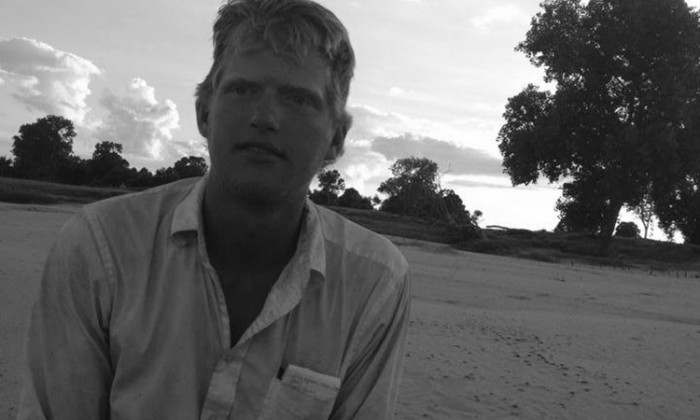
 ifteen people are playing bingo. The prize is a Twizzler. Any one person can win a maximum of two Twizzlers, and no one can win twice until everyone has won once. These people are men between the ages of 18 and fuck-knows, and this is the first time they’ve been reasonably quiet all day – although there are the obligatory bingo jokes.
ifteen people are playing bingo. The prize is a Twizzler. Any one person can win a maximum of two Twizzlers, and no one can win twice until everyone has won once. These people are men between the ages of 18 and fuck-knows, and this is the first time they’ve been reasonably quiet all day – although there are the obligatory bingo jokes. Jacob Reecher graduated from the University of Wisconsin-Platteville in 2013. This is his first non-fiction publication, although his fiction has appeared in Driftless Review. He currently lives in Byron, Illinois, and is editing his first novel.
Jacob Reecher graduated from the University of Wisconsin-Platteville in 2013. This is his first non-fiction publication, although his fiction has appeared in Driftless Review. He currently lives in Byron, Illinois, and is editing his first novel.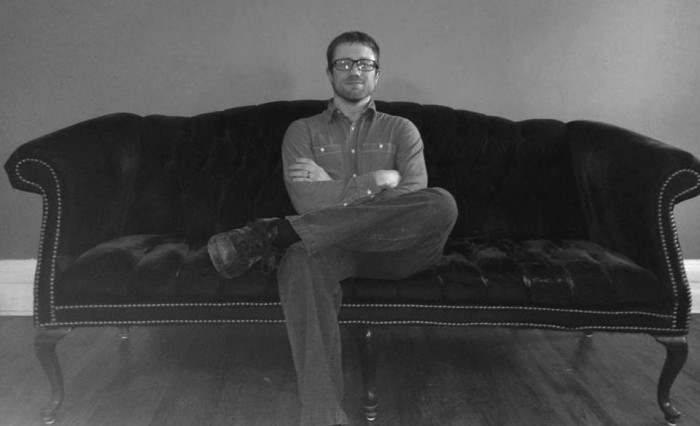
 Darren C. Demaree is the author of “As We Refer to Our Bodies” (8th House, 2013), “Temporary Champions” (Main Street Rag, 2014), and “Not For Art Nor Prayer” (8th House, 2015). He is the recipient of three Pushcart Prize nominations and a Best of the Net Nomination. He is currently living in Columbus, Ohio with his wife and children.
Darren C. Demaree is the author of “As We Refer to Our Bodies” (8th House, 2013), “Temporary Champions” (Main Street Rag, 2014), and “Not For Art Nor Prayer” (8th House, 2015). He is the recipient of three Pushcart Prize nominations and a Best of the Net Nomination. He is currently living in Columbus, Ohio with his wife and children.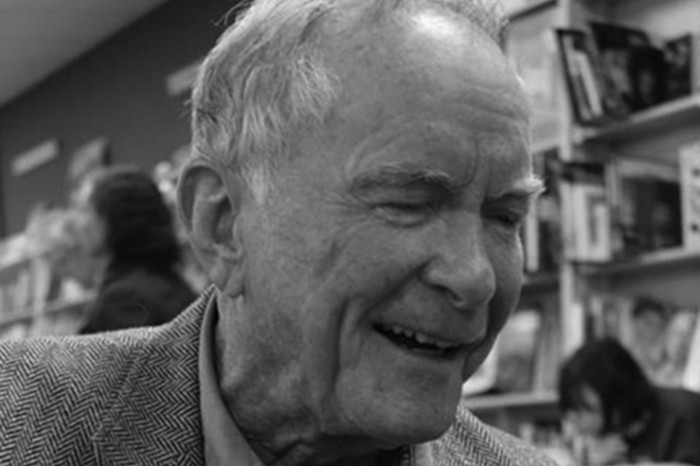
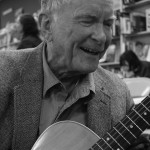 Shelby Stephenson’s Family Matters: Homage to July, the Slave Girl won the 2008 Bellday Poetry Prize, Allen Grossman, judge. Shelby Stephenson’s The Hunger of Freedom (2014) was published by Red Dashboard.
Shelby Stephenson’s Family Matters: Homage to July, the Slave Girl won the 2008 Bellday Poetry Prize, Allen Grossman, judge. Shelby Stephenson’s The Hunger of Freedom (2014) was published by Red Dashboard.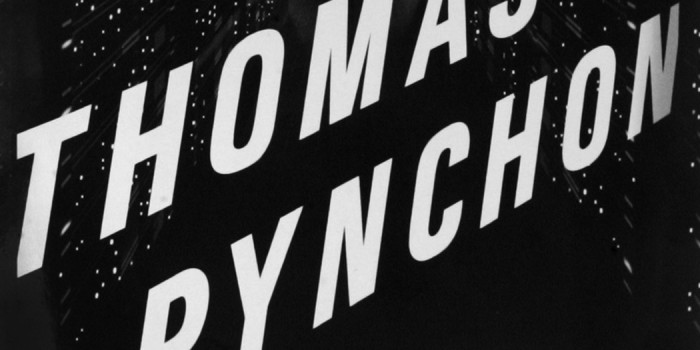
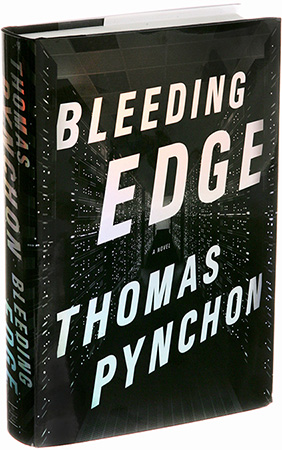
 David Letzler teaches English at Queens College in the City University of New York and lives in Briarwood, Queens with his wife and cat. He’s just finished his dissertation on the enormous novels of Thomas Pynchon et al, so you can trust that he basically knows what he’s talking about. Most of the time, he promises, he likes Pynchon more than Michiko Kakutani does.
David Letzler teaches English at Queens College in the City University of New York and lives in Briarwood, Queens with his wife and cat. He’s just finished his dissertation on the enormous novels of Thomas Pynchon et al, so you can trust that he basically knows what he’s talking about. Most of the time, he promises, he likes Pynchon more than Michiko Kakutani does.